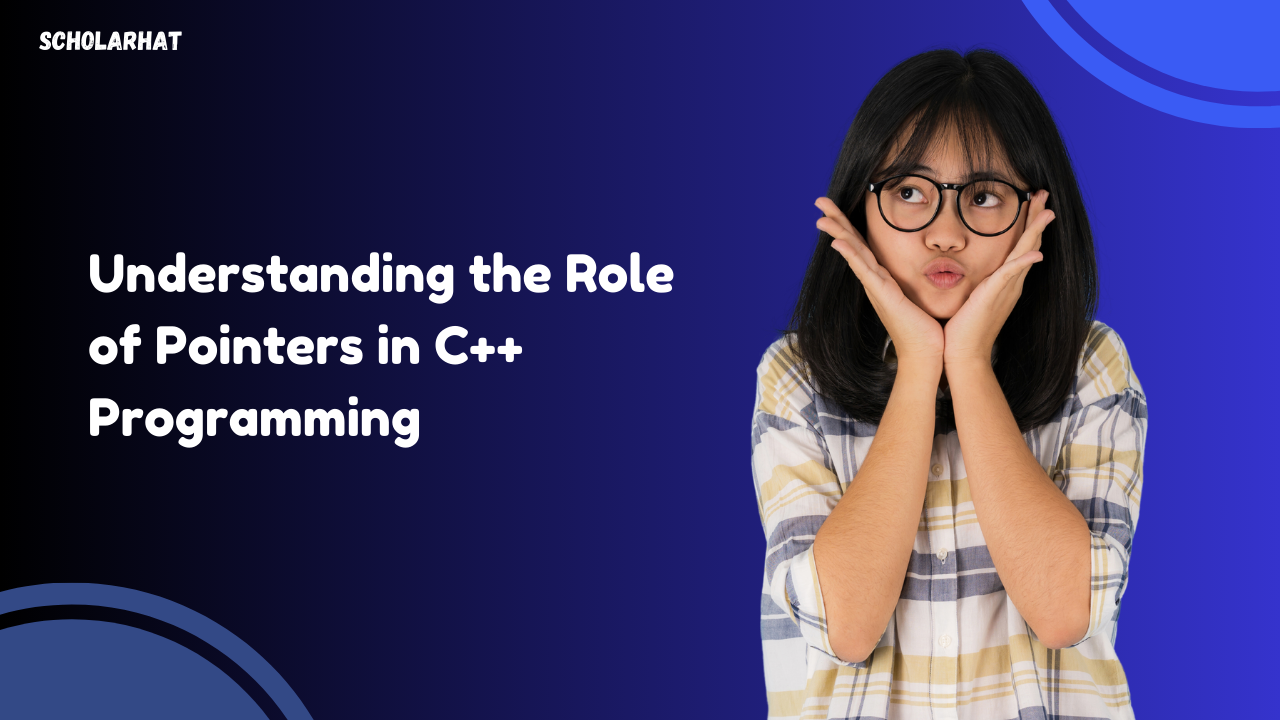
Pointers are a fundamental concept in C++ programming, offering a powerful way to manipulate memory and work with arrays. Mastering pointers is crucial for anyone looking to deepen their understanding of C++ and improve their programming skills. This article delves into the role of pointers in C++ programming, highlighting their importance and providing practical examples to illustrate their use.
Pointers are one of the most powerful features of C++. They provide direct access to memory, allowing for efficient manipulation of data and resources. Understanding how pointers work and how to use them effectively is essential for any C++ programmer.
What Are Pointers?
Pointers are variables that store memory addresses. Instead of holding a data value, a pointer holds the address of another variable. This allows you to directly access and manipulate the memory where that variable is stored.
Declaring and Initializing Pointers
To declare a pointer, you use the asterisk (*) symbol. Here’s how you can declare and initialize a pointers in C++:
int* ptr; // Declaration int x = 10; ptr = &x; // Initialization with the address of x
In this example, ptr is a pointer to an integer, and it holds the address of the variable x.
Pointers and Arrays
Pointers and arrays are closely related in C++. An array name acts like a constant pointer to its first element. This means you can use pointers to traverse and manipulate array elements.
int arr[] = {1, 2, 3, 4, 5}; int* ptr = arr; // Pointing to the first element of the array
for(int i = 0; i < 5; i++) { std::cout << *(ptr + i) << std::endl; // Accessing array elements using pointer arithmetic }
Pointer Arithmetic
Pointer arithmetic allows you to perform operations on pointers, such as incrementing or decrementing them. This is particularly useful when working with C++ arrays.
- Incrementing Pointers: Moves the pointer to the next memory location of the type it points to.
- Decrementing Pointers: Moves the pointer to the previous memory location.
- Adding/Subtracting Integers: Changes the pointer position by a specified number of elements.
int arr[] = {10, 20, 30, 40, 50}; int* ptr = arr;
std::cout << *ptr << std::endl; // Output: 10 ptr++; std::cout << *ptr << std::endl; // Output: 20 ptr += 2; std::cout << *ptr << std::endl; // Output: 40
Pointers to Functions
Pointers can also point to functions, allowing for dynamic execution of code. This is useful for implementing callback functions and function tables.
void printHello() { std::cout << “Hello, World!” << std::endl; }
int main() { void (*funcPtr)(); // Declaration of a function pointer funcPtr = printHello; // Initialization with function address funcPtr(); // Calling the function via pointer return 0; }
Dynamic Memory Allocation
Pointers are essential for dynamic memory allocation, enabling you to allocate memory at runtime. The new and delete operators are used for this purpose in C++.
int* ptr = new int; // Allocating memory for an integer *ptr = 100; std::cout << *ptr << std::endl; // Output: 100 delete ptr; // Deallocating memory
int* arr = new int[5]; // Allocating memory for an array for(int i = 0; i < 5; i++) { arr[i] = i * 10; } delete[] arr; // Deallocating memory
Common Mistakes and Best Practices
Working with pointers can be tricky, and there are common pitfalls to avoid:
- Dangling Pointers: Ensure pointers are set to nullptr after deallocation to avoid accessing invalid memory.
- Memory Leaks: Always deallocate memory that is no longer needed.
- Pointer Arithmetic Errors: Be cautious with pointer arithmetic to prevent accessing out-of-bounds memory.
Best practices include:
- Use Smart Pointers: Utilize smart pointers (e.g., std::unique_ptr, std::shared_ptr) from the C++ Standard Library to manage memory automatically.
- Initialize Pointers: Always initialize pointers to avoid undefined behavior.
- Check for Null: Before dereferencing a pointer, check if it is nullptr.
Conclusion
Pointers are a powerful feature in C++ that provides direct memory access and manipulation capabilities. They are essential for working with arrays, dynamic memory allocation, and function pointers. By understanding the role of pointers and following best practices, you can write more efficient and effective C++ code.